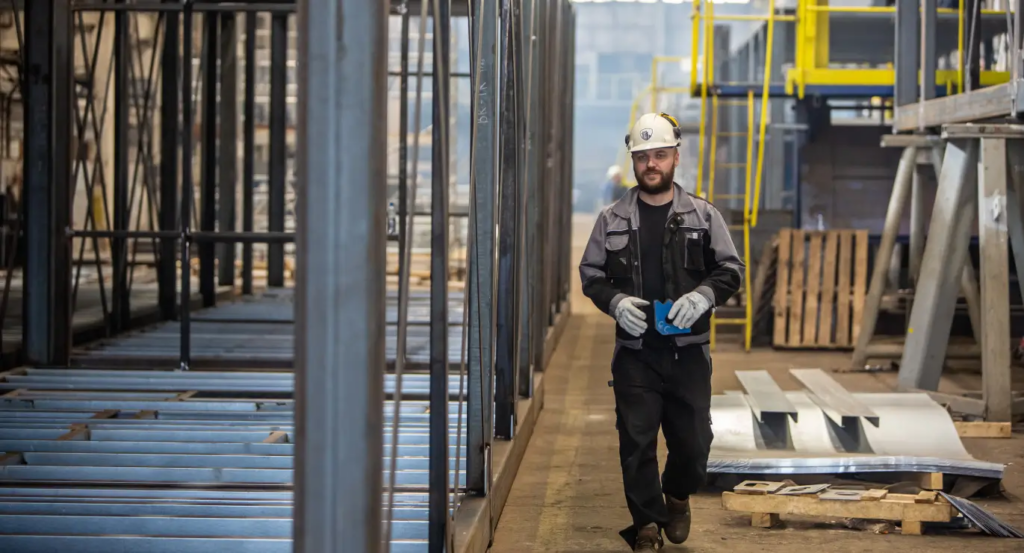A Crucial Step in Quoting Success
Offsite construction companies frequently encounter requests to quote large-scale projects, from multi-family housing complexes to expansive commercial developments. While preparing an accurate and competitive quote is a complex task in itself, it is only the beginning of what should be a more strategic process. A well-crafted tactical plan document can make the difference between securing the contract and facing delays, cost overruns, or miscommunications that could derail even the most promising opportunities. Here’s why this step is critical and how it sets the stage for success.

all photos – VBC Modular
Understanding the Scope and Complexity
The first reason to create a tactical plan is to gain a comprehensive understanding of the project’s scope and complexity. Large-scale projects come with numerous moving parts—design coordination, supply chain logistics, regulatory compliance, and client expectations. Management must thoroughly assess these factors early on. The tactical plan serves as a blueprint that identifies each element, allowing the team to map out the approach, pinpoint potential risks, and establish a timeline for milestones.
Without this proactive assessment, the quote could be inaccurate, leading to unexpected hurdles during execution. For instance, failure to account for regulatory approvals could cause delays, or underestimating material lead times might inflate costs. A tactical plan aligns internal resources, helping to avoid these pitfalls by building contingencies directly into the quote.

.
Strategic Alignment with Business Objectives
Preparing a tactical plan ensures that the project aligns with the company’s broader business objectives. Offsite construction firms often juggle multiple projects, so it’s crucial to determine whether taking on a large-scale job is feasible without straining resources. This plan provides a structured approach to evaluating whether the project fits within the company’s strategic priorities, capabilities, and financial targets.
For example, if a company is focused on expanding its expertise in modular healthcare facilities, pursuing a residential skyscraper might not be in line with its current trajectory. The tactical plan guides decision-making, helping management weigh the benefits of diversification against the risks of stretching too thin. Ultimately, it clarifies whether the project should move forward or if it requires adjustments in resources or partnerships.

.
Client Confidence and Relationship Building
One often overlooked benefit of a tactical plan is the confidence it instills in potential clients. When a company presents a detailed plan alongside its quote, it signals professionalism, preparedness, and a deep understanding of the client’s needs. This can be a decisive factor in securing the contract, especially in competitive bidding environments.
A well-documented plan showcases the company’s methodical approach, providing clients with visibility into every stage of the project—from design and procurement to delivery and installation. Clients are more likely to trust a company that has thought through the execution in granular detail, leading to stronger relationships and smoother negotiations. It sets a positive tone from the outset, establishing the company as a reliable partner capable of delivering large-scale projects on time and within budget.

.
Risk Management and Resource Allocation
Risk management is another critical reason for developing a tactical plan. Large projects amplify the potential for risks, ranging from supply chain disruptions to workforce shortages. The tactical plan allows management to identify and mitigate these risks early, ensuring that appropriate resources are allocated and backup strategies are in place.
For instance, if the plan identifies potential delays in material procurement, management can decide whether to source from multiple suppliers or negotiate flexible delivery terms. Similarly, the plan can address labor requirements, making sure that specialized skills are available when needed. This foresight not only minimizes disruptions but also reduces the likelihood of costly change orders, rework, or penalties due to missed deadlines.
Modcoach Note
In offsite construction, securing a large project goes beyond submitting a competitive quote; it requires a deep understanding of what lies ahead. A tactical plan is more than a project management tool; it is a strategic document that aligns the team’s efforts, mitigates risks, and enhances client trust. By integrating this step into the quoting process, offsite construction companies set the stage for smoother project execution, stronger client relationships, and ultimately, sustained business growth.
Investing time upfront in a tactical plan transforms what could be a reactive, chaotic response into a well-organized, confident strategy—paving the way for success in even the most complex projects.
.
CLICK HERE to read the latest edition
Contact Gary Fleisher












